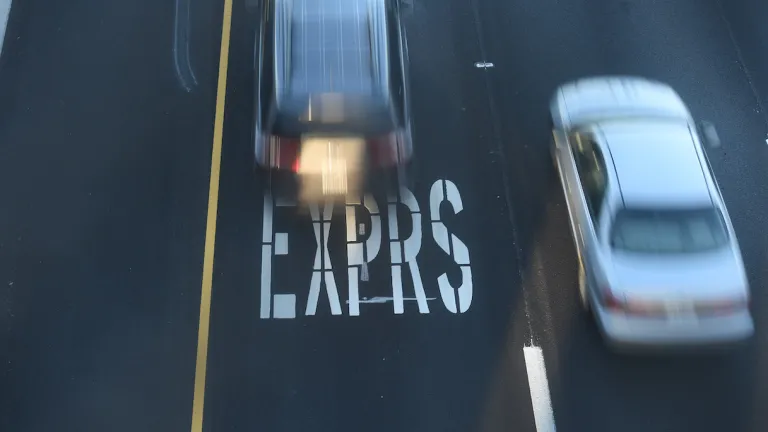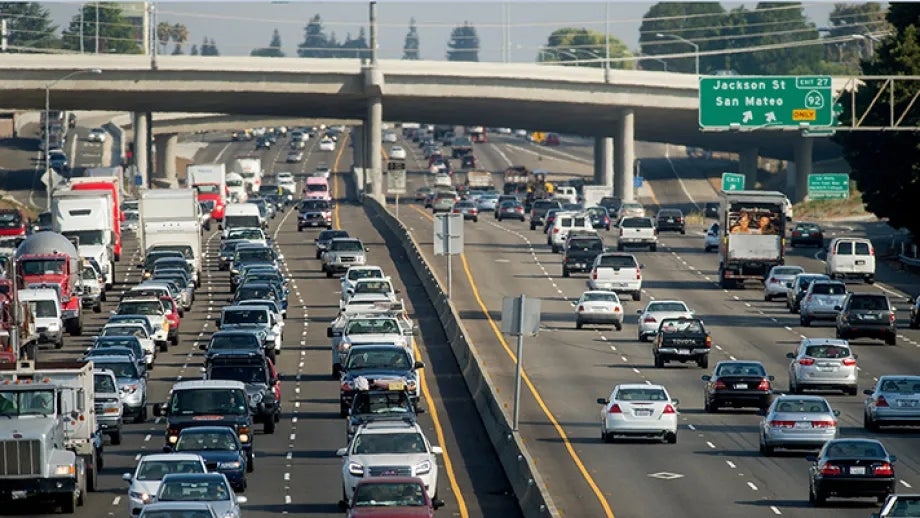Managed Lanes Implementation Plan
MTC’s Managed Lanes Implementation Plan helps ensure that carpool and Express Lanes are meeting the needs of carpoolers and transit riders.
What are Managed Lanes?
For Bay Area drivers, these are traditional carpool lanes and express lanes.
For traffic engineers, “managed lanes” refer to any lanes on a freeway set aside from general-purpose lanes (by occupancy requirements, pricing or access limitations).
What the Managed Lanes Implementation Plan Does
- Analyzes the existing performance of managed lanes, including usage, occupancy, vehicle types and occupancy violations
- Defines priorities for full build-out of the carpool lane network
- Develops guidance on policies for managed lanes, including occupancy requirements, operating hours and enforcement
- Identifies express bus and park-and-ride strategies to realize the full benefits of managed lanes
Bay Area Express Lanes ease traffic congestion on Bay Area freeways with a lane especially for carpools, buses, motorcycles and other eligible vehicles.

The Managed Lanes Implementation Plan was developed by MTC, in partnership with Caltrans and the California Highway Patrol. Additional partners included:
- Alameda-Contra Costa Transit District (AC Transit)
- Alameda County Transportation Commission
- Central Contra Costa Transit Authority (County Connection)
- City/County Association of Governments of San Mateo County
- Contra Costa Transportation Authority
- Fairfield and Suisun Transit (FAST)
- Golden Gate Bridge, Highway and Transportation District
- Livermore/Amador Valley Transit Authority (WHEELS)
- San Francisco County Transportation Authority
- San Francisco Municipal Transportation Agency (SFMTA)
- San Mateo County Transit District (SamTrans)
- San Mateo County Transportation Authority
- Santa Clara Valley Transportation Authority (VTA)
- Solano County Transit (SolTrans)
- Solano Transportation Authority
- Sonoma County Transportation Authority
- Transportation Authority of Marin
- West Contra Costa Transportation Advisory Committee
- Western Contra Costa Transit Authority (WestCAT)
The Managed Lanes Implementation Plan included an extensive data collection effort. Areas of focus are:
- Degradation
- Vehicle occupancy
- Carpool lane violations
- Clean Air Vehicles
- Express bus trips
- Park-and-ride utilization
Degradation
Federal law mandates that the operation of HOV and Express Lanes be monitored to ensure a minimum average speed of 45 mph at least 90% of the time during peak hours over a 180-day period. Those that do not meet this requirement are considered “degraded,” and changes must be made to meet the performance requirement.
The findings and policy guidance in the plan continue to inform projects and policy decisions today. Several project concepts identified in the plan have been implemented or are underway through various “Forward” Commute Initiatives. These include new extensions of Bus/HOV lanes, new Commuter Parking, and increased express bus services:

